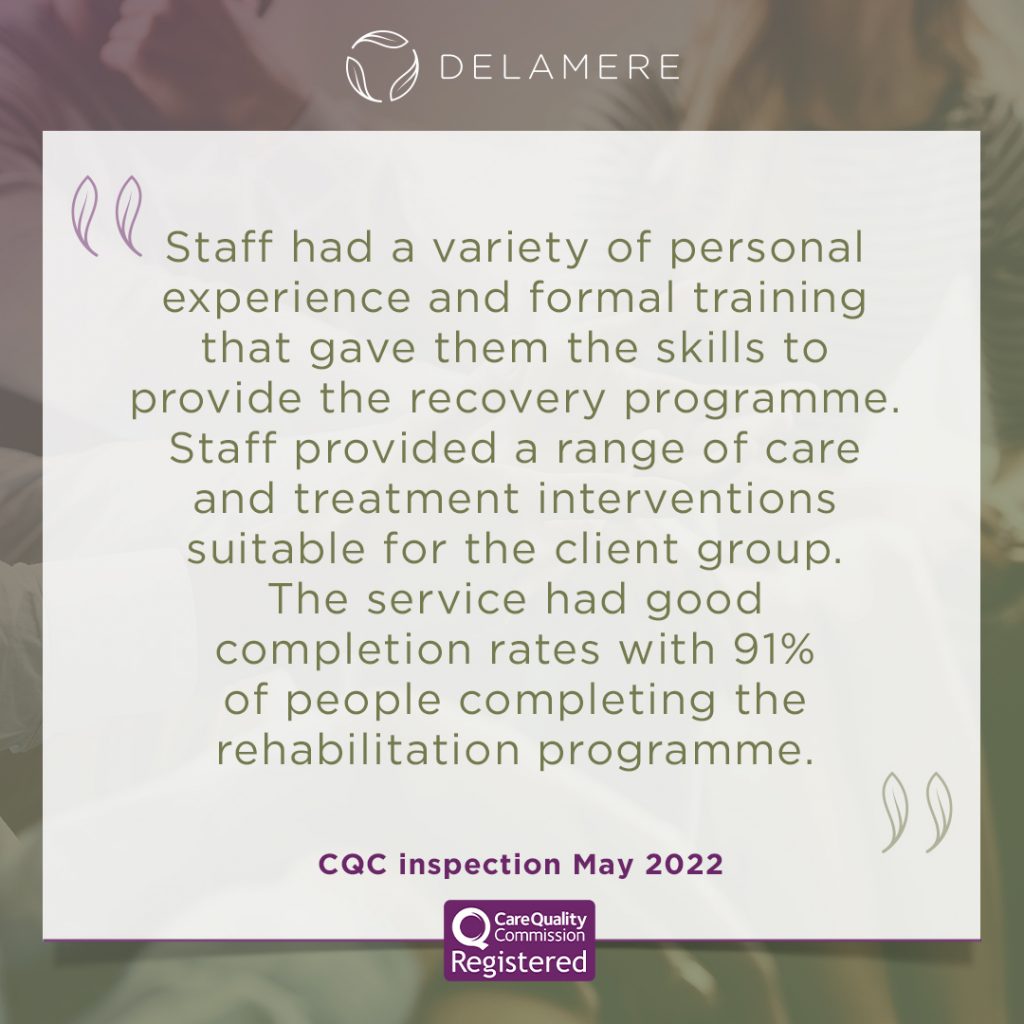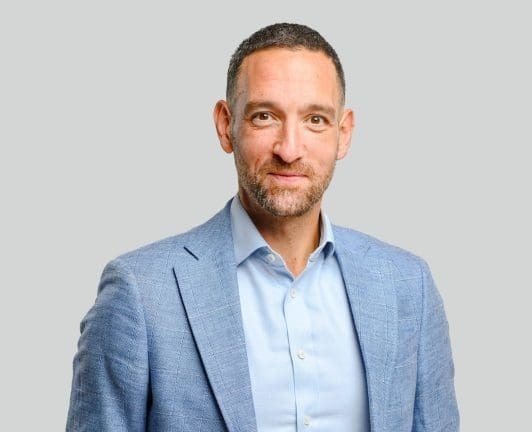What’s included?
- Introduction
- Is addiction a disease or a mental illness?
- Why is addiction called a brain disease?
- What areas of the brain are associated with addiction?
- How can Delamere help with addiction?
Does someone choose to become an alcoholic or spend a lifetime addicted to drugs? Is it hereditary? Are people who suffer from Substance Use Disorders (SUDs) predisposed to intentional self-harm? Or is addiction a disease? In biology, a disease is defined as “a disorder of the structure or function of an organism that is not the direct result of physical injury”. Whereas an illness is something that needs to be managed, such as pain or infection. It was Alan Leshner, director of the US National Institute on Drug Abuse, who first stated, “addiction is a brain disease” (1).
At Delamere, we know how important it is to recognise alcohol addiction and drug addiction as a chronic brain disease. Without this definition, many people who suffer with SUDs are misunderstood. Friends and family members can wrongly assume that the individual is deliberately making life choices that are reckless and hurtful to them. Understanding that addiction is a compulsive disorder of the brain is crucial to getting the right support for recovery. This article should help give a clearer picture of how the brain works and the impact of addiction.

Is addiction a disease or a mental illness?
To understand the medical definition of addiction, it helps to explore the difference between an illness and a disease. A disease is a pathological process that has specific signs and symptoms that can be diagnosed by a healthcare professional. An illness is more like a general state of feeling unwell – you may have a cold or flu, for instance – but this isn’t necessary due to a chronic condition.
So, if the symptoms of addiction make you feel ill, is addiction a mental illness? You’ll see addiction being described this way by numerous sources, but it’s a bit of a grey area. The truth is that the two conditions aren’t the same, but often coexist. People who suffer with Substance Use Disorders (SUDs) can have some kind of mental illness and vice versa. Mental health disorders, such as anxiety and depression, can be the underlying cause for alcohol addiction and drug addiction as people try to escape past trauma or life stresses.
However, mood disorders, such as generalised anxiety disorder, can also be the result of years of abuse or unwanted withdrawal symptoms associated with drink and drugs. Some other mental illnesses that can coexist with addiction include schizophrenia, bipolar disorder, ADHD and PTSD. These conditions can make people vulnerable to compulsive, risky behaviours due to loss of control over their emotions and behaviour.
Why is addiction called a brain disease?
The American Medical Association (AMA) classified alcoholism and addiction as diseases in 1956 and 1997 respectively. Whilst neither were previously thought of as diseases, the AMA fought to ensure that those inflicted with an involuntary need to abuse alcohol and drugs had a right to treatment, rather than punishment. In 2011, the American Society of Addiction Medicine (ASAM) followed suit, defining addiction as “a primary, chronic disease of brain reward, motivation, memory and related circuitry”.
Although widely accepted today, the classification of substance addiction has come under scrutiny in recent years, with the public, policy makers and the scientific community still asking is addiction really a brain disorder? Addiction is still seen by some as a moral failing of the individual and a waste of taxpayers’ money. To ensure people can access evidence-based treatment, scientists must put forward a convincing argument that addiction is, in fact, a disease, but a growing cohort challenge that there is no such data to support this.
The main arguments against addiction as a chronic brain disease are that spontaneous remission rates are high; pathological evidence is lacking; and that people suffering with addiction can still make informed choices. A recent review of scientific literature sought to argue against the critics and concluded that denying addiction is a disease contributes to reducing essential access to healthcare and treatment (1).
What areas of the brain are associated with addiction?
To truly answer the question, ‘Is addiction a disease?’ it’s important to understand the areas of the brain that are affected. Increasingly, studies suggest that substance use disorders are chronic illnesses that share similar features to common disorders such as diabetes, asthma and high blood pressure. In that, addiction is often genetic and is influenced by behavioural, social and environmental factors.
Scientific evidence also shows that the progression from tolerance to addiction is due to a series of brain changes that occur from repeated exposure to alcohol and drugs. The main areas of the brain that play a role in Substance Use Disorders (SUDs) are the basal ganglia, the extended amygdale and the prefrontal cortex (2). Because addiction is a disorder of the structure or function of the brain, it can be classed as a brain disease, in the form of a compulsive disorder.
Addiction changes the brain’s reward circuit
When repeatedly abused, drugs and alcohol rewire the brain to think and react differently. The basal ganglia is an area of the brain responsible for speech, movement and posture. It’s also known to play an important role in our pleasure/reward system – essentially, the joy we find in activities such as eating and socialising. Someone with a Substance Use Disorder (SUD) will become so used to feeling a particular high that their brain can’t derive pleasure from anything else.
Addiction causes the brain to crave
The extended amygdale plays a role in how the brain handles stress, anxiety and irritability. The longer drugs and alcohol are allowed to tamper with this delicate system, the more the brain can’t cope without them. Over time, a person who is suffering with addiction will need more and more of their fix to be able to feel relaxed and quash any unwanted withdrawal symptoms.
Addiction alters mood and behaviour
Finally, the brain’s prefrontal cortex is responsible for how a person thinks, solves problems and behaves. This is area of the brain that matures last, making adolescents more vulnerable to drug and alcohol abuse. Continually disrupting the balance of this system increases a person’s inability to control their behaviour and fuels compulsive actions.
You can see how disruptions in these areas in the brain are fundamental in driving and developing addiction, leaving people powerless to control their thoughts and actions. While the debate over whether addiction is a biological or behavioural affliction continues, one thing that unites everyone, from neuroscientists to psychologists, is that people with Substance Use Disorders (SUD) need, and deserve, a multidisciplinary approach to treatment.
How can Delamere help with addiction?
Delamere is the UK’s first purpose-built wellness retreat specialising in alcohol and drug addiction. From our tranquil forest surroundings in the heart of Cheshire, our multi-disciplinary team of addiction experts take a holistic approach to your treatment. We understand how addiction affects the brain and offer evidence-based programmes that help to undo negative thought patterns and compulsive behaviour.

Every residential rehab programme begins with an intensive clinical detox, to overcome unwelcome withdrawal symptoms and ensure you are in the best of health mentally and physically before beginning your treatment. Our guests are assigned their own focal therapist for one-to-one counselling and take part in group therapy where they can begin to unravel the reasons for their addiction.
We believe that everyone can live a life free from addiction with the right support. We will help you every step of the way with a variety of proven therapeutic techniques and somatic healing practices. Our aim is to help your brain stop craving alcohol or drugs, start to recover from past stress and grow beyond addiction.
If you think you may be addicted to alcohol or drugs, call us confidentially to speak to a member of the team today.
References
1. Heilig, M., MacKillop, J., Martinez, D. et al. Addiction as a brain disease revised: why it still matters, and the need for consilience. Neuropsychopharmacol. 46, 1715–1723 (2021). https://doi.org/10.1038/s41386-020-00950-y.
2. Substance Abuse and Mental Health Services Administration (US); Office of the Surgeon General (US). Facing Addiction in America: The Surgeon General’s Report on Alcohol, Drugs, and Health [Internet]. Washington (DC): US Department of Health and Human Serv.






